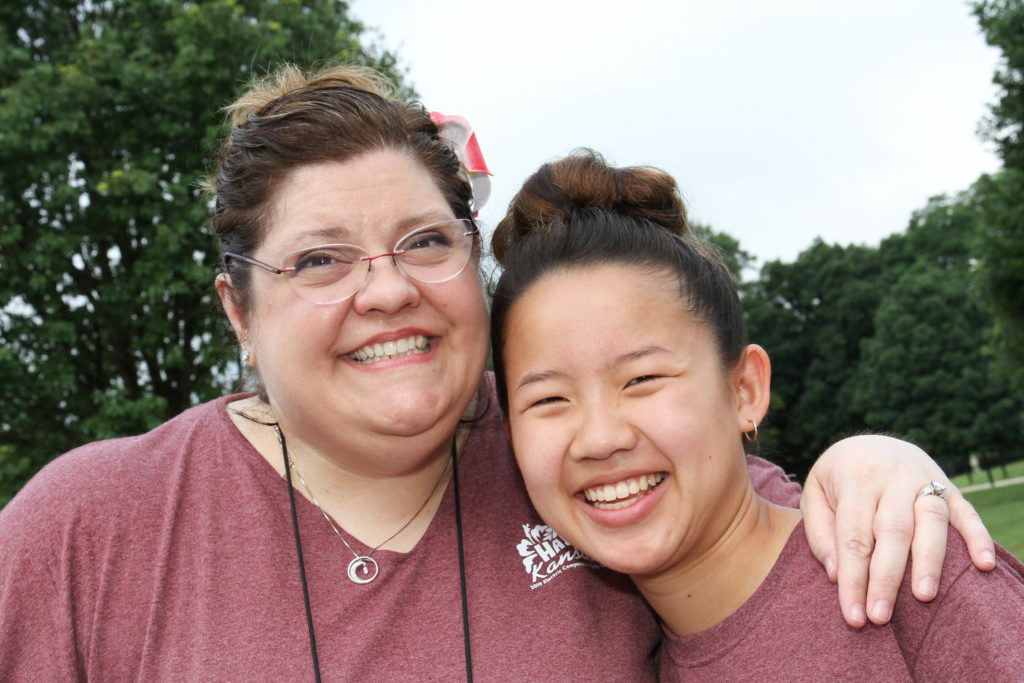Shana Read is director of education and training at Kansas Electric Cooperatives in Topeka, where she coordinates the Electric Cooperative Youth Tour for her state and Hawaii, with Kaua‘i Island Utility Cooperative’s Shelley Paik. Before the COVID-19 pandemic canceled the 2020 Youth Tour, Read was scheduled to accompany 40 students from both states for the week-long trip to Washington, D.C. She was also scheduled to bring 45 students from Kansas and Oklahoma to the annual Cooperative Youth Leadership Camp in Steamboat Springs, Colorado. That event was canceled as well.

Having to tell our student winners that they weren’t going on the (Youth Tour) trip, I felt like I was a breaker of hearts and a crusher of dreams. It was a very difficult task to tell them that they weren’t getting to go on this life-changing trip. Many students learn about Youth Tour from someone else who went and, normally, that’s a great thing. But this year, I really feel for them because they have an idea of what they are missing. But it’s more important to keep them safe, so I’d do it again in a heartbeat.
The first rumblings about how the pandemic was going to affect our youth programs happened as early as the NRECA Annual Meeting in February when we were in New Orleans. Several of the Youth Tour directors were there, and we were having conversations at that time. In March, the decision was made for the safety of the student delegates and chaperones that it would be irresponsible to have the Youth Tour at this time. You can’t do social distancing on a bus.
It was sad we had to cancel, but I was grateful that we decided as early as we did, from a logistics standpoint. We were able to get a hold of businesses to start requesting refunds before they were forced to close. I would say that I made close to 100 phone calls to vendors to cancel by the time it was said and done. We typically visit anywhere from five to 10 attractions or businesses a day. And then you have the airlines, the two bus companies, the hotels, and a photographer and tour guide who come in for a day. Luckily, most places were very understanding and very accommodating. These are people that we’ve worked with for decades, and they know they’re going to see us again.
Another thing we were challenged with is that even though we’re not having the Washington, D.C., Youth Tour, we still need to select the Youth Leadership Council, which is made up of one student per state. Typically, students apply for YLC well before the trip and we would interview them during their first day in D.C., and then observe them in person for a few days. So, we’ve added a couple new steps. One of them is (for the students) to write an essay about how the pandemic has affected them. Another step will be a virtual meeting with an alumnus of the program.
As far as the Cooperative Youth Leadership Camp, we really wanted to wait to cancel for as long as possible because these student winners have had so much already taken from them. They’re missing their high school graduations, their proms or their final academic or sporting events or musicals.
One of the parents actually emailed me and said, ‘Thank you for keeping the camp as long as you could, because it was a shining light.’ But by the time we canceled the camp, the reaction of the parents and the kids was: ‘We expected this when they canceled the D.C. trip.’ They still asked if there was anything else we could do to still go. One of the girls said, ‘Can we just reschedule it for August?’ Oh, I wish it were that easy.
Each distribution co-op participating in our youth programs is honoring their youth winners with scholarships, donations to community projects, or even allowing students to reapply for next year, even if they have aged out.
The closest we’ve ever come to this in my 20 years of Youth Tour was right after 9/11. We had several months before Youth Tour to emotionally recover from the attack. I remember that we had discussions with parents to say, ‘Do you have any concerns about sending your child with us to the U.S. Capitol?’ And not only did they not have concerns, but they found it even more important for their students to go and experience more than what they were able to offer back home. So, we made a point of taking our students to the Pentagon Memorial park after it opened and talking about that event.
But I do remember after those first couple of years, there weren’t the crowds and the lines, and things were sparsely visited because there was hesitation and a little bit of fear.
And then, over the last decade, things have started to slowly build back up. I’m curious to see if that will repeat when things do open back up after this pandemic. Will we have a comfort level where the parents will want to send their students on their first airplane ride, knowing they could be exposed to a lot of things? What will the trip look like? What precautions will become commonplace? Will it be just as busy as ever or will it not?
Victoria A. Rocha is a staff writer at NRECA.
Related Content:
Read More on the electric co-op response to the COVID-19 Pandemic
First Person: Ohio Lineworker Adjusts to COVID-19 Changes
First Person: ‘Members Will Remember That Their Electric Co-ops Stepped Up’
First Person: ‘You Feel Like You’re on an Island’ Says Kentucky Co-op Rep